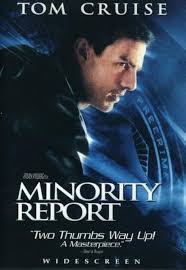
Introduction to Minority Report
Minority Report, a seminal work by Philip K. Dick, has continued to gain relevance since its publication in 1956. The narrative revolves around the ethical dilemmas of pre-crime law enforcement and the implications of free will, making it a pivotal subject in contemporary discussions on morality and governance. The film adaptation directed by Steven Spielberg in 2002 further cemented its importance, introducing these themes to a wider audience and sparking conversations about surveillance, predictive analytics, and the future of justice.
Key Themes and Developments
The core concept of Minority Report tackles the potential consequences of a society that embraces predictive technology to prevent crime before it occurs. This idea resonates strongly in today’s world, where advancements in artificial intelligence and data analysis have led to the emergence of predictive policing. Additionally, the film’s portrayal of a dystopian future raises pressing questions about privacy rights and governmental control, especially in the context of ongoing debates surrounding surveillance.
The film’s protagonist, John Anderton, played by Tom Cruise, illustrates the struggle between determinism and free will. As he becomes a fugitive, accused of a future crime, the narrative challenges viewers to consider how much control individuals have over their paths in life, a question that remains at the forefront of ethical discussions today. Recent studies highlight that the use of predictive technologies can often lead to biases, leading to ethical quandaries similar to those depicted in Minority Report.
Recent Developments in Related Technologies
Recent reports indicate a growing trend in law enforcement agencies adopting predictive analytics to forecast criminal activities. In cities like Los Angeles and Chicago, tools that analyse past crime data to predict future incidents are already in use. However, these practices have received criticism due to concerns over racial profiling and the infringement of civil liberties.
Moreover, the ongoing development of AI technologies illustrates an increasing intersection with the themes presented in Minority Report. The integration of AI in decision-making processes raises significant ethical considerations about accountability, bias, and the potential for abuse of power, echoing the exploration of these issues in both Dick’s original work and Spielberg’s adaptation.
Conclusion and Implications
Minority Report serves not only as a cautionary tale of a potential future but also as a lens through which we can examine current societal trends. As we stand on the brink of further advancements in technology that could impact criminal justice, the themes explored in this narrative remain crucial. The questions of free will, ethics, and the role of government in personal lives are as relevant today as they were when the story was first conceived. For readers and viewers alike, engaging with Minority Report provides significant insights into the moral complexities of contemporary society and the future we are shaping.
You may also like

The Importance of Storytelling in Modern Society

Understanding the Fall Season: Change, Beauty, and Tradition
